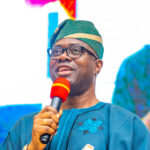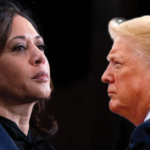Nigeria’s role in ending the apartheid regime which held South Africa under tight grip is remarkable.
So much involved was Nigeria in the fight against apartheid that it was accorded the status of a frontline state, despite being situated thousands of kilometers away from Pretoria.
After breaking the shackles of apartheid in 1994, relations between both countries continued to enhance more business ties. Bi-lateral relations at governmental levels were boosted with several agreements.
In 1999, the Olusegun Obasanjo administration in Nigeria and the Thabo Mbeki administration in South Africa moved to strengthen the ties the more with the inauguration of the Bi-National Commission (BNC) between both countries. The commission falls within the purview of Vice Presidents of both countries.
The commission, organised at both ends, aims at promoting trade and investment as well as providing a forum for building a strategic bi-lateral partnership that will not only be of mutual interest to both countries, but will also be a vehicle for consolidation of the African agenda.
Ten years down the line, both nations believe the commission has moved relations between them to a scale where it needs to be celebrated.
South African authorities, giving an account of its yields, say it has so much boosted trade between both countries that it rose from 1.7 billion Rands (about N22 billion) in 1999 to 22.8 billion Rands (about 460 billion) in 2008.
“South-Africa-Nigeria relations reflect a true model of both a possible and successful achievement of intra-Africa trade and investment as envisaged by the New Partnership For Africa’s Economic Development (NEPAD),” South Africa’s Minister of State, Security, Siyabonga Cwele, says of the relations.
He explains that South Africa has the largest number of agreements with Nigeria than with any other country, saying this shows the depth of relations.
South African companies, who were only four in Nigeria at the inception of the BNC in 1999, increased to over 100 by 2009, enhancing their fortunes through potentials of the Nigerian market.
Boyce Lloyd, Commercial and Strategy Director of SABMILLER said its entry into Nigeria opened the company to earning profit it made in 24 countries put together.
“If you are not in Nigeria, you are not in Africa,” Lloyd tells the group of international investors, stressing that Nigeria is the China of Africa.
Lloyd is not alone as many other South African firms, such as Southern Sun, Nandos and MTN, also smile to the banks on account of the open doors facilitated by the BNC into Nigeria.
Nigeria’s High Commissioner to South Africa, Rtd. Brig,-Gen Mohammed Marwa, says the BNC has achieved closer ties in areas of sports, women affairs, defence and aviation.
He says movement of people between both countries has also been enhanced by the signing of a new Bilateral Air Services Agreement (BASA) which grants 20 weekly flights between both capitals by Arik and South African Airways. Fourteen of these had already been taken up with daily flights by both.
“SAA has also been granted rights to fly into Abuja from Johannesburg and also Arik to fly into one more city after Johannesburg,” Marwa explains.
Marwa, like the Chief Executive Officer, South Africa-Nigeria Chamber of Commerce, Diana Games, however, believes the relations can be better.
The Speaker, House of Representatives, Hon. Dimeji Bankole, drives home the point during the celebration of the South Africa leg of the commission.
Bankole says the relations have been lopsided in favour of South Africa — as Nigerian companies face delays and numerous hurdles in getting licences and other business permits to operate in South Africa.
With the hurdles, only few Nigerian companies can sing the prosperity song being sung by their South African counterparts in Nigeria where they continue to multiply due to open access.
Bankole calls for a redress to enable the union further achieve its potentials.
As the commission begins its march to adding another decade, Marwa believes its gains must also be made to permeate the peoples of both countries.
Marwa’s idea of giving birth to the South Africa-Nigeria Peoples Friendship Association (SANFA) is a move to change stereotypes about Nigerians in South Africa, where they are wrongly perceived by many of the nationals as law breakers.
“There has been this stereotype — a lot of suspicion sometimes mixed with fear by ordinary people — that Nigerians tend to be unlawful people, crooked, and so on and so forth, despite ongoing cordial relations at governmental level.
“SANFA I thought, will bridge this gap,” Marwa says, expressing hope that the next 10 years of the commission would witness more progress.
Mr Ken Ayere, President, Nigerians in Diaspora Organisation (NIDO), South Africa chapter, thinks the same way.
Ayere says if the hurdles that are many for Nigerian businessmen in South Africa are eased by the commission, it would help create a balance in the lopsided benefits of the union.
As both nations celebrate the Nigerian leg of the decade of the commission, a major leap is on the verge of being taken.
Holders of diplomatic and official passports are to begin to travel between both countries without visas to boost free movement.
If this is endorsed in Abuja, then the commission would have moved a significant step forward in enhancing brotherhood between both nations which many say, hold the key to a greater African continent. (NANFeatures)
 Join Daily Trust WhatsApp Community For Quick Access To News and Happenings Around You.
Join Daily Trust WhatsApp Community For Quick Access To News and Happenings Around You.



